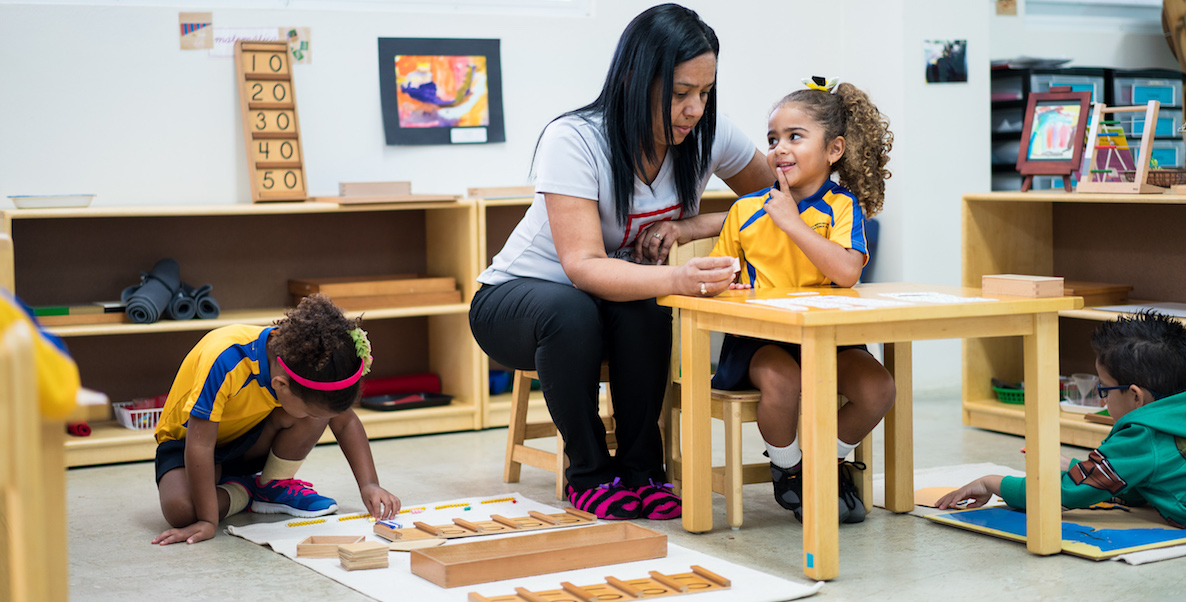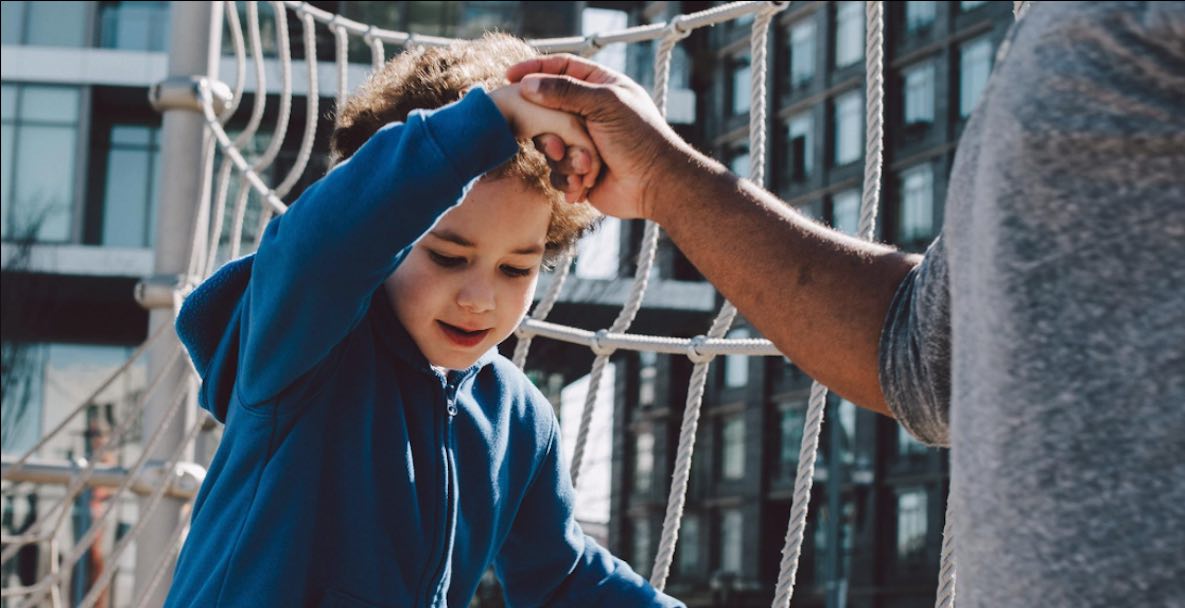About five years ago, Lauren Hallden, a user experience designer at data platform company Stitch, found herself at an emotional crossroads familiar to many of us. She had just turned 30, and recently been through a break-up; her group of friends had “rolled over.” She was working at Penn, and taking coding courses to jumpstart her career. Things felt…adrift.
She was, she realized, lonely. “I was in a phase where I was on social media a lot, checking my phone at the end of the day, which just made me feel more lonely,” Hallden says. “I wished there was something I had that could make myself feel better in that moment.”

So Hallden, as part of a class on designing for social disruption, created The Lonely Project, a Twitter bot that searches the platform for tweets expressing loneliness, displays them to users, and lets them send an automatic reply of encouragement. In the last five years, the bot has sent 5,000 tweets to lonely hearts around the Twitter world.
“It was a way of taking something that made me feel kind of helpless, and spinning it around so I was actively doing something,” Hallden says. “But clearly, I don’t think that I can ‘cure’ loneliness this way.”
If only it were that simple.
Like Hallden at the time, Americans feel increasingly lonely these days. Around 35 percent of us over 45 report feeling lonely, according to a study by the AARP; and the number of people who say they have no close companions has tripled since 1990. A Cigna study from the spring that used a 20 question UCLA Loneliness Scale found that 41 percent of people in the Philadelphia metropolitan area—which includes Camden and Wilmington—were lonely, including the youngest respondents between 18 and 22, who scored highest on the scale.
Help out a strangerDo Something
But loneliness is not just about emotional health. Research has shown that it causes a whole host of physical ailments, including chronic inflammation, Alzheimer’s disease, cancer, heart disease and, of course, depression, which can lead to a host of other ailments. Some studies have concluded that it’s as bad on the body as smoking 15 cigarettes a day, and that it is a bigger contributor to heart disease than being obese or sedentary. In fact, according to a 75-year Harvard University study, social relationships are the single most important key to a happy life, as well as one that is long and healthy.
That’s why in England—where some 9 million people report often or always feeling lonely—Prime Minister Theresa May in January appointed the world’s first Minister for Loneliness to combat what she called “the sad reality of modern life.” Tracey Crouch, who is also the country’s Minister for Sport and Civil Society, is now developing a more comprehensive method of measuring loneliness in the general population; studying successful grassroots programs around the world—including retirement communities in Florida; and devising a way to scale those programs to reach more people in more communities. She is expected to release the first iteration of her strategy in the fall, though results could take years. (May has been criticized for slashing social services at the same time as declaring loneliness worthy of a minister.)
Loneliness in England cost employers up to $3.5 billion annually in poor productivity; and it can lead to depression, substance abuse and even suicide; together, those ailments cost the U.S. about $960 billion a year.
The post was a recommendation of a Commission on Loneliness started by—and eventually named for—Jo Cox, the Labor Party leader who was shot and killed in 2016. Cox, who said she herself felt lonely and isolated after the birth of her first child, wanted to find a way to help her constituents with similar experiences. The Commission took a broad and deep look at the prevalence of loneliness across England and came up with several recommendations, including a ministerial leader, funding for community programs and widespread education on the issue.
The idea is taking hold elsewhere, as well. Australia last year launched its own Coalition to End Loneliness. And in the U.S., Anthem Insurance, an arm of Blue Cross Blue Shield, last year launched CareMore for its senior citizen patients, a program run by a Chief Togetherness Officer that includes redesigning care centers to be social spaces where seniors can drop in to spend time; senior-focused gyms; personal phone outreach and in-home visits.
It is a sign of the recognition that we are facing, as former U.S. Surgeon General Vivek Murthy put it in a widely-referenced Harvard Business Review article, “an epidemic of loneliness and social isolation.”
The Jo Cox Loneliness Commission Report Read Even More
It seems, in some ways, counterintuitive. We are always connected to someone out there, via our smart phones, with our social media feeds, endless texting chains, Facebook groups. We have more access to more information and communities on the web than ever before, and many of still believe in the promise of the Internet: That it brings humans together.
But being connected to people is not the same thing as feeling connected through real relationships. We seem instead to live increasingly disconnected lives. The late University of Chicago psychologist John Cacioppo, the best known loneliness researcher, illustrated this last year when he talked about the difference between using Facebook as a way to arrange a meeting, and using it to replace human interaction; one decreased isolation, the other increased it.
Loneliness is not just about emotional health. Research has shown that it causes a whole host of physical ailments, including chronic inflammation, Alzheimer’s disease, cancer and heart disease.
“Even my youngest clients still grew up in a time where families lived within three blocks of each other,” says Misa Romasco, a clinical social worker for Philadelphia’s Intercommunity Action who has worked with senior citizens for the last 40 years. “Now people are much more mobile, moving across the country for jobs. It’s very different to do a Skype visit with your grandchild than being able to visit, cuddle and talk with them face to face.”
Watch Stephen Colbert share his thoughtsVideo
It is not likely that our federal government will devote much energy to curing American loneliness; in some ways, forging our own solitary paths is almost a point of pride here. Nor is the issue likely to top Mayor Kenney’s agenda in the near future. That’s too bad, really, because the ripple effects of creating a less lonely populace are myriad: There’s individual health, of course, as well as community health and also economic health. Loneliness in England cost employers up to $3.5 billion annually in poor productivity; and it can lead to depression, substance abuse and even suicide; together, those ailments cost the U.S. about $960 billion a year, according to the Cost of Loneliness Project using CDC numbers.
The solution instead will need to come from all of us, as individuals, communities and organizations, including employers. Romasco says her lonely older clients often find relief when she convinces them to visit their neighborhood’s senior centers for exercise classes, knitting circles, games, or even just lunch. The Jo Cox Commission laid out some programs that have had success in England, including Shared Lives Plus, which pairs lonely seniors with young people needing homes; and The Great Wirral Door Knock, which sends volunteers to areas likely to have high populations of lonely people to spread the word about programs they could join.
Ideas We Should Steal Read More
That effort points to something researchers and Romasco agree on: Getting to your neighbors, talking to people in line, looking past what seems alien to connect to others is the simplest path to helping people end their isolation. “There’s almost a lack of kindness these days, like we’ve lost the personal touch,” Romasco says. “We need to reach out more, make sure you know your neighbor. You don’t have to become best friends, but let them know you’re there.”
For Hallden, the loneliness that begat The Lonely Project has waxed and waned, triggered as life happens. She doesn’t think much about her bot these days, though it continues to do its thing, and occasionally, she has felt the need to reach out personally, to let a recipient know she understands what they’re going through, and perhaps direct them to mental health services.
She knows that tech is not the answer; but tech is also what she has at her—literal—fingertips all the time. And she has continued to create publicly available tools that contribute in even a small way to the world’s well-being. Her latest project: A therapy calculator to help users navigate how they might pay for mental health treatment. It, too, came out of her own experience of trying to figure out how to afford it. “I’m paying with a combination of my Flexible Spending Account, out of network insurance claims, and all these different things, so like 40 percent of the upfront price,” she says. “If I’d known that, I would have done it sooner. I figured this was something other people would find useful, too. And anything I could do would be helpful.”
Antonio Guillem via Shutterstock






